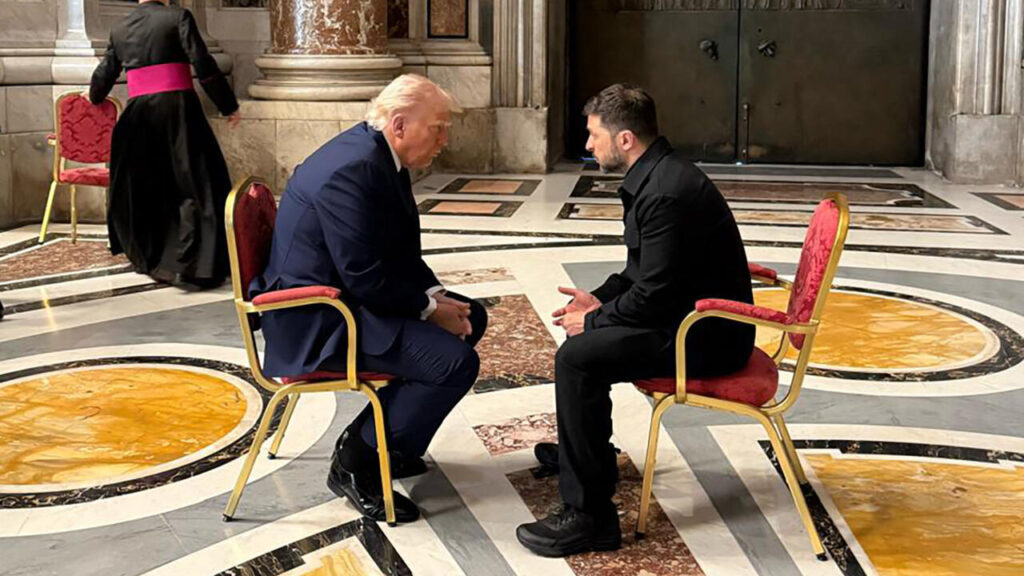In a recent group discussion at church, Pope Francis’s death came up.
We seemed to agree, spoken and unspoken, that he was a good man.
A different kind of pope.
His papacy was one that restored and reordered the Catholic church. Perhaps the church catholic too.
He emphasized those things which are commanded unto us Christians from the scriptures: “do justice, love mercy, and to walk humbly with your God” and to “‘Love the Lord your God with all your heart and with all your soul and with all your mind.’ This is the first and greatest commandment. And the second is like it: ‘Love your neighbor as yourself.’”
My understanding of the Catholic church is such that it commands the attention and persuasion of many of the world’s Christians, and therefore many of the people of the world, sheerly through it’s reach across time and space.
It is powerful. But, it is not powerful in the way that it used to command power. The same maybe said of the direction of other faiths and religions.
That power used to command more than attention and persuasion.
It used to command influence.
This was so because – to over-generalize – the world was ordered around the influence of the religious life.
In the final verses of the Gospel of Matthew, Jesus gives The Great Commission which undoubtedly influenced the Catholic church, and all Christian’s, ambitions:
19 “Go therefore and make disciples of all nations, baptizing them in the name of the Father and of the Son and of the Holy Spirit,
20 and teaching them to obey everything that I have commanded you. And remember, I am with you always, to the end of the age.”
In one sense, for a great period of time, a significant and influential portion of the world was ordered around The Great Commission.
Columbus sailed the ocean blue in no small part because of his Catholic faith and the ambitions of Spain’s Catholic rulers.
This is no longer true.
Or, perhaps this is no longer only true.
The decisions of the powerful don’t overtly flow from the religious life.
The collective mind of the world has expanded to hold more stories, more myths, more religious narrative, and, importantly, a more diffuse power structure.
The world has secularized. I do not mean this in the culture-war sense of secular vs. religious. I mean, as Charles Taylor says, that we now seek our meaning through many different options in the pursuit of meaning and fulfillment.
For both better and for worse, this diffuseness – the expanding of the collective mind and the ordering and reordering of power – seems to mean something like:
The power is outside the Vatican.
In our group discussion, I tried observing, out loud, that the power of the Pope and the Church is now largely symbolic.
This is more an observation than and argument. I don’t have the scholarship to make and defend such as a thought as an argument.
While the Pope and the Church clearly still command something important, that the world’s leaders get on their aeroplanes to come and pay their respects at the funeral, it seems more a matter of attention than power.
Symbolic, rather than directive.
It is no longer the church sending the explorers and conquistadores, but the state.
It is no longer the church founding the universities and funding the science, but the state.
More and more, it is the state (the political machine) that we use to map our meaning, rather than the church.
Sure, it’s been this way for a long time. And this is not all bad. Nor is it all good. Novel concept that something could be neither all good nor all bad.
I’m beginning to wander, I fear, so let me say succinctly what I mean and why I’m writing this:

It seems like the death of a good man (Pope Francis) makes one wonder why it is that it takes death for us to consider choosing life.
The new order comes to pay tribute to the old order.
The kids come to the grandfather’s funeral, now in control of the business he started – each with their own piece of the pie, their own incentive structures, and their own need to rely on each other to keep the business going – and you wonder whether they’ll honor him in death by choosing to work and live together, or will they say some nice things about The Old Man and “the way things used to be” and just go back to fighting over who gets which part of the business. Or maybe more fundamentally, they’re fighting over what the business is (meaning).
I just wonder if The Old Man’s power and influence is perceived or real.
Christ’s life tells me that it’s real even if it’s not immediate or directive any longer.